Yesterday in Moscow, theater director and poet Evgenia “Zhenya” Berkovich was sentenced to six years in prison. Officially, she was accused of justifying terrorism through one of her plays. Her sentencing occurred on the same day Russia launched a terrorist attack on a children's hospital in Kyiv.
However, given the campaign waged against Berkovich by propagandists, it's clear that she was actually being punished for her poetry – she authored the most well-known anti-war poems in Russian. Berkovich is the most prominent poetic voice in Russia opposing the invasion of Ukraine.
The Rising Star
I met Zhenya – as friends call Evgenia Berkovich – in 2019. At that time, I had founded the Mobile Art Theater in Moscow – a theater without a building, with all its performances housed on a mobile phone. Each play corresponded to a walking route around the city: you’d walk down the street with headphones, listen to the audio play, and feel as if the performance was unfolding around you, with you as a participant, and all the other passersby, buildings, trees, and benches integrated into the play.
I wanted to produce a play based on the poems of Marina Tsvetaeva, the great Russian poet who fled the Bolsheviks in 1922, returned to the USSR in 1939, and took her own life in 1941. I chose Zhenya as the director and playwright for this production – she was already known as a rising star in the new Russian theater.
Shortly before this, she had directed the incredible play “Counting-Out Rhyme” about children during the Georgian-Abkhazian war in the early 90s, one of the most delicate and poignant productions I’d seen in Moscow in recent years. Zhenya also had to regularly attend court – her teacher, theater director Kirill Serebrennikov, was being tried on trumped-up, politically motivated charges, and Zhenya testified, proving his innocence.
The play Zhenya directed based on Tsvetaeva's works (which I produced) was called “We Part Ways” – it was a story of inevitable tragic love, of unavoidable separation, and of living with the knowledge of an unhappy ending ahead. The play was very successful, earning Zhenya her first nomination for the prestigious Russian theater award, the Golden Mask.
The opening night of our show “We Part Ways”, Moscow, 2020
We became friends and collaborated on many projects – for instance, Zhenya wrote the script for a TV series I produced. She also had her independent theater company, “Daughters of Soso,” which featured an all-female cast. Zhenya established herself as one of the leading feminists in contemporary Russian theater. In 2021, she directed the play “Finist the Brave Falcon,” about Russian girls who met ISIS fighters online and traveled to Syria to join them, only to be convicted upon returning to Russia for attempting to join a terrorist organization. This play was Zhenya’s most successful, earning her two Golden Mask awards.
On February 24, 2022, when Russia invaded Ukraine, Zhenya immediately went to one of Moscow’s central squares with a sign saying "No to war." She was promptly arrested for ten days. Zhenya was one of the first Russians to pay the price for protesting the war.
The Best Poet
After leaving Russia, I urged Zhenya to move to Europe too. But she refused, primarily because of her children. She has two adopted daughters with disabilities – taking them out of Russia would require a massive amount of paperwork. But it wasn’t just about the documents – Zhenya didn’t want to leave. She wanted to fight by staying in Russia. She reassured me, saying, "Don’t worry about me, I’ll soon go to Israel and get an Israeli passport. If anything happens, I’ll flee there." But in reality, she had no intention of fleeing.
All that time, Zhenya was writing poems and publishing them on her Facebook page. They were all about this terrible war. About the victims from “a city that no longer exists.” About the children, mothers, fathers, grandmothers, and grandfathers dying under Russian bombs. About Russian citizens who trade on the memory of their WWII veteran grandfathers to justify the current carnage.
Thousands of people shared Zhenya’s poems. They became the most powerful poetic works of 2022 – and Zhenya Berkovich’s voice became the loudest voice for those Russians who opposed the war. In just a few days, she became Russia’s leading anti-war poet.
For many months after the war began, I had mental conversations with Zhenya. Every now and then, as I was writing another column for the New York Times or Der Spiegel, I imagined Zhenya and wondered what she would say if she had read it. To me, she symbolized all those who stayed, who still live in Putin’s Russia, live and protest. In my thoughts, Zhenya became the “conscience” of today’s Russia.
In modern Russian, there is a common phrase, 'the conscience of the nation.' It was used to describe Sakharov and many other intellectuals – writers, artists, scientists – who were not afraid to stand up against those in power. For me, the phrase 'the conscience of the nation' had a very specific meaning this past year – it had a name: Zhenya Berkovich.
When I talked to Zhenya (mentally and over the phone), I always envisioned another great Russian poet – Anna Akhmatova. She was a contemporary of Tsvetaeva but never left Russia, despite all the repression that befell her and her family. “I am not with those who abandoned their land to the mockery of enemies,” she proudly wrote. Her first husband, poet Nikolai Gumilev, was executed in 1919, and her son, Lev Gumilev, was arrested in 1938 and sent to the Gulag. He was released only after Stalin’s death. And in 1961, the 72-year-old Akhmatova wrote lines about not regretting never emigrating from Russia: “I was with my people then, where my people, alas, were.”
Anna Akhmatova
These words are still frequently quoted in debates between those who believe one should leave Putin’s Russia and those who insist on staying. It always seemed to me that Zhenya Berkovich is a direct poetic heir of Anna Akhmatova. It felt like through her work she was telling me, “I was with my people then, where my people, alas, were.” Although, of course, if Zhenya read these lines now, she would surely laugh. Zhenya and such pathos are completely incompatible.
In the fall of 2022, she held a charity auction to support Russian political prisoners – she asked all her acquaintances to donate their past awards: theatrical, literary, and film prizes, statuettes received "for contribution," and then sold them at auction. With the money raised, she hired lawyers to defend those protesting the war – there are thousands of such criminal cases in Russia. I sent her my statuette, which I received in 2019 as Russia's best educator.
Due to her anti-war stance, Zhenya, of course, lost her job. All Russian theaters and other cultural organizations refused to cooperate with her. Old friends explained that she could continue to work only if she wrote under a pseudonym. Nevertheless, her own independent theater company “Daughters of Soso” continued to operate – successfully touring and drawing audiences across Russia.
Terrorist and Feminist
The propagandists hated Zhenya. They wrote nasty things about her – especially enraged by the popularity of her anti-war poems on the internet. At some point in 2022, her phone was even hacked – and one of the most odious pro-Kremlin Telegram channels published naked photos of Zhenya. However, no one could have imagined that the state machine would come down with all its might on a fragile woman, a mother of two children.
As my sources told me, Zhenya was particularly hated by Nikita Mikhalkov – once a famous film director, Oscar winner for the film "Burnt by the Sun." Now he has become one of the main obscurantists and propagandists spreading fascist ideas. He wields considerable influence among senior officials. They say he brought a printout of Zhenya Berkovich's poems from the internet to the head of the Investigative Committee (the Russian equivalent of the FBI), Alexander Bastrykin, with the words “This is who is corrupting our youth.”
In 1993, Nikita Mikhalkov received an Oscar for his anti-Stalinist movie. Now, he has become a propagandist serving the Putin regime.
And then the police came to Zhenya. There were searches at her home, and at her grandmother’s home – a famous Soviet human rights activist. All the gadgets in the house were confiscated, and Zhenya was taken away in handcuffs.
Simultaneously, at Moscow's Vnukovo Airport, Sveta Petrychuk, the playwright who wrote the play "Finist the Brave Falcon" that Zhenya directed in 2020, was detained. The play had long ceased to be performed, but a denunciation surfaced somewhere, demanding that this work be checked for "justification of terrorism."
Incidentally, Sveta Petrychuk left Russia after the war began and lived in Kazakhstan for a year. She came to Moscow for just a few days and was planning to leave again. However, she was detained at the moment she was about to fly back to Kazakhstan.
The so-called “experts” brought in by the court found ideologies of Islamism and Jihadism in the play, as well as "signs of radical feminism and a struggle against the androcentric social structure of Russia." What does that mean? Since when has Russia become a "male state," and women are punished just for being feminists?
Sveta and Zhenya
The investigation lasted more than a year, and during all this time, Zhenya and Sveta were behind bars. This is an extreme measure – they could have been placed under house arrest or even released on their own recognizance. However, the Russian state decided that the poet and playwright were so dangerous that they needed to be isolated even before the trial began.
During this time, Zhenya’s grandmother – the renowned human rights activist Nina Katerli – passed away. Zhenya requested permission to attend the funeral, and she was taken there. She later described the trip as torture because she had to spend 25 hours in an unheated police van without warm clothes, food, or water. According to the director, it was impossible to stand, sit, or sleep in the van, and she was only allowed to use the toilet twice in 24 hours.
And now the court has delivered its sentence – six years in prison.
The verdict was handed down on the same day that Russia struck a children's hospital in Kyiv. I know there is nothing worse than this. Killing children is much worse than destroying poets, but both crimes are a kind of textbook evil that leaves one speechless.
Putin's propagandists are jubilant – once again writing their usual nastiness about the honest, free, and talented Zhenya and Sveta.
When the case first began, theater director Kirill Serebrennikov, Zhenya's mentor who himself spent over a year under house arrest on political charges, wrote: "If you tell murderers that they are murderers, they will certainly respond... Well, they have responded. Jokes about the 'bloody regime' are no longer jokes. It is bloody and criminal. And it is proud and boasts of its bloodiness. Informers have raised their heads, scoundrels have been given a voice. It's their time, Zhenya. And there's nothing we can do about it; we just have to wait."
We all have to wait. And I want to say: "Zhenya, we are not parting our ways. We are with you." Even though I am in America now, and you are in Russia, in a cold cell.
Here is the translation of some of Zhenya’s poems:
Right now, we cannot help Zhenya and Sveta, but we must help the Ukrainians who are being destroyed by the Russian terrorist regime.
Donate!
https://www.razomforukraine.org/
https://www.globalgiving.org/projects/emergency-help-for-kids-after-russian-shelling/





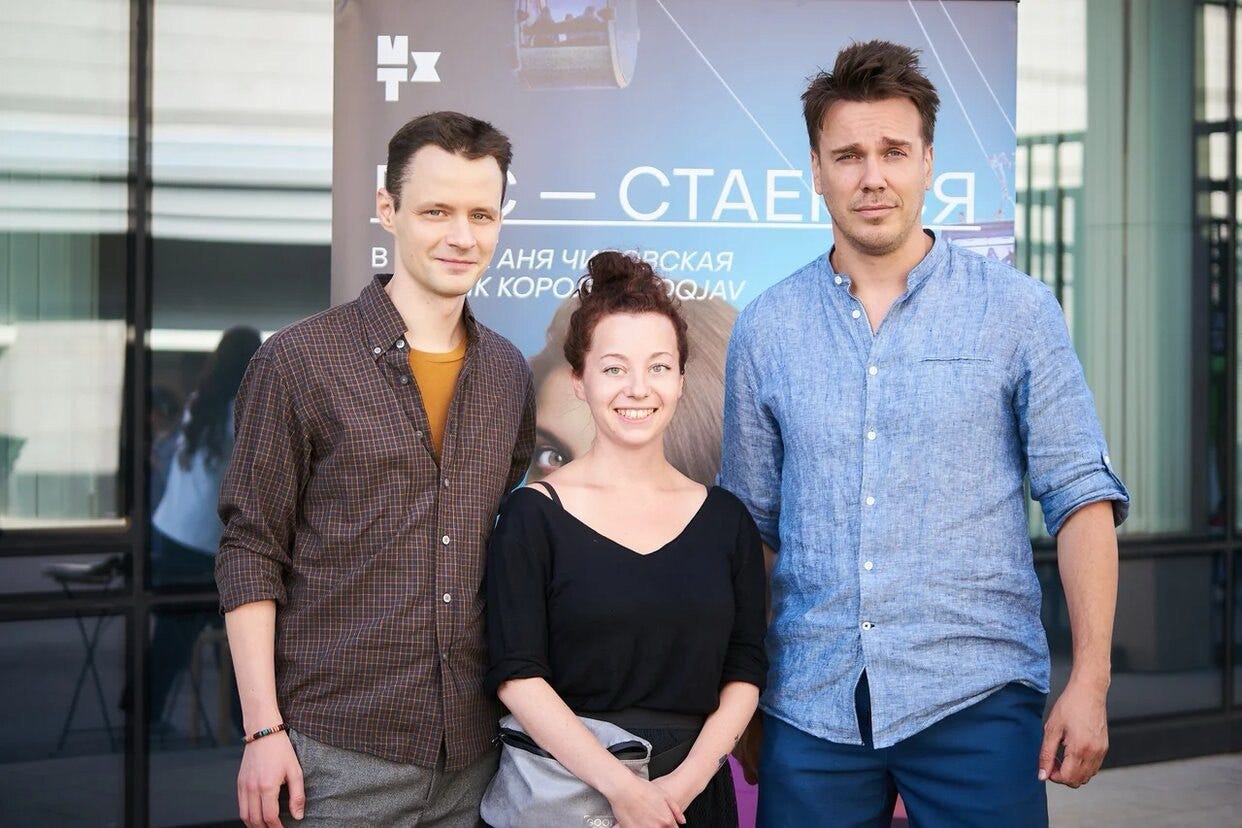
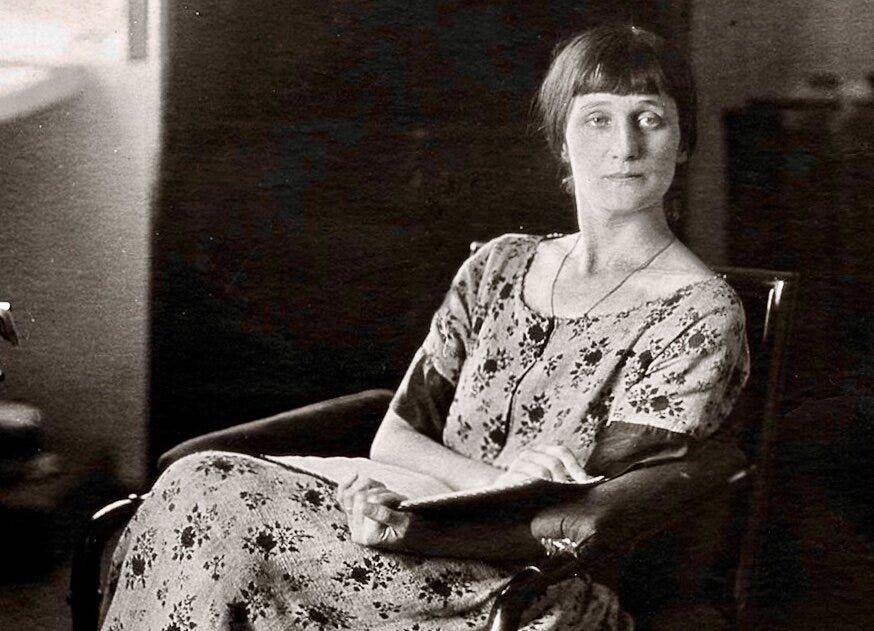
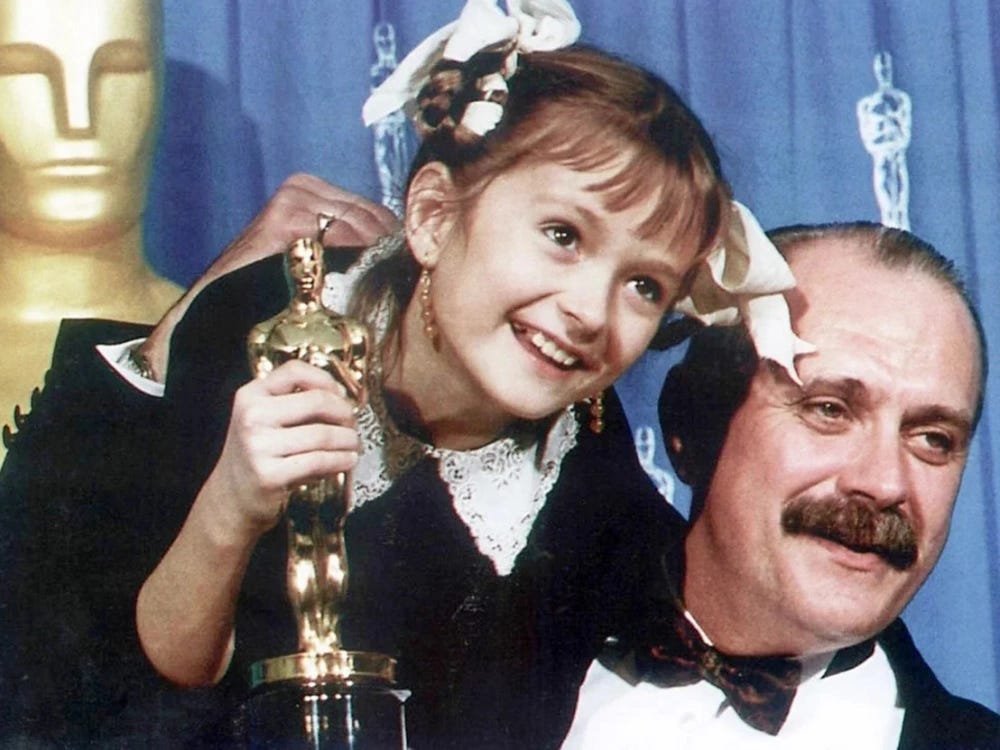
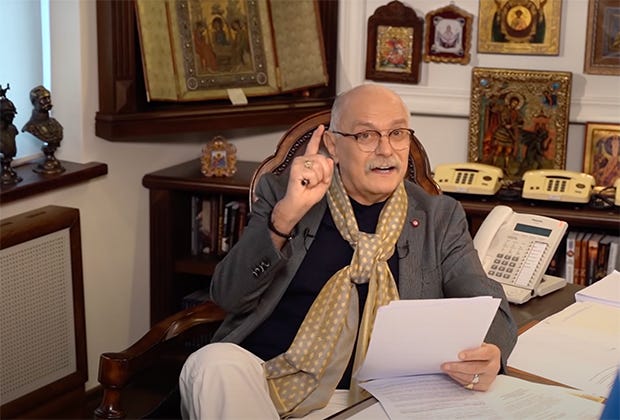

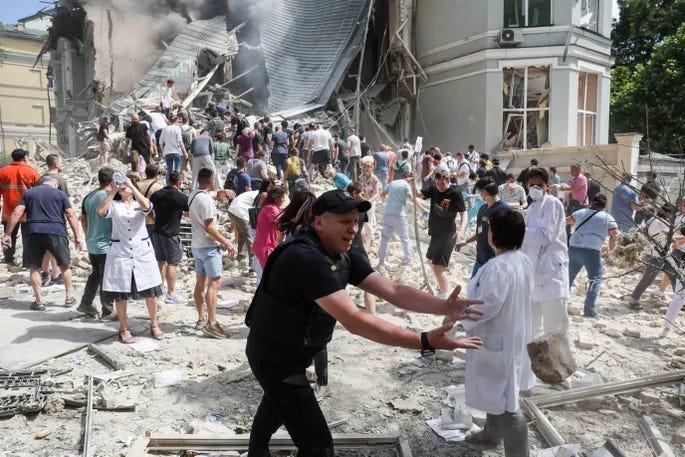
This is an amazing, extraordinary story that deserves to be told EVERYWHERE !
Thank you so very much Mikhail for bringing it to us !!!
The brutal reality of power and ideology. Your story is both a stark reminder of that and a testament to the courage of those who dare to take it on. Thank you.